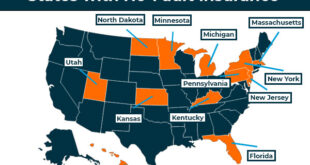Loan Credit Check: Everything You Need to Know When applying for a loan, understanding the importance of a loan credit check is crucial. This process determines your eligibility and can influence the terms of your loan. A loan credit check ensures lenders evaluate your financial stability and repayment ability. In this article, we’ll explore the essentials of loan credit checks, their types, and how they affect borrowers.
What Is a Loan Credit Check?
A loan credit check is a financial assessment performed by lenders to evaluate your creditworthiness. It involves reviewing your credit history, score, and other financial behaviors to decide whether you qualify for a loan.
Types of Loan Credit Checks
- Hard Credit Check:
- Performed when you apply for a loan or credit card.
- Can impact your credit score temporarily.
- Soft Credit Check:
- Used for pre-approvals or background checks.
- Does not affect your credit score.
How a Loan Credit Check Impacts Your Loan Application
- Credit Score Influence:
- Higher credit scores result in better loan terms, such as lower interest rates.
- A low credit score can lead to higher rates or application rejection.
- Loan Approval:
- Lenders rely heavily on credit checks to approve or deny loan applications.
- Repayment Terms:
- Your credit history affects the loan’s repayment duration and monthly payments.
Steps to Prepare for a Loan Credit Check
- Review Your Credit Report:
Obtain a free credit report from agencies like Experian or TransUnion to identify any discrepancies. - Dispute Errors:
If you find errors, contact the credit bureau to rectify them immediately. - Pay Down Debts:
Lowering your credit utilization ratio improves your credit score. - Avoid New Credit Applications:
Applying for multiple loans within a short time can negatively impact your credit score.
Benefits of a Good Credit Check Result
- Quick Approvals: Lenders process applications faster for those with strong credit scores.
- Lower Interest Rates: A good credit score helps secure competitive rates, saving money over time.
- Better Loan Options: Access to diverse loan products with favorable terms.
Common Mistakes During Loan Credit Checks
- Applying for multiple loans simultaneously.
- Ignoring credit report inaccuracies.
- Failing to understand the impact of credit inquiries.
Loan Credit Check Best Practices
- Set reminders to check your credit report annually.
- Pay bills on time to maintain a positive payment history.
- Keep credit utilization below 30% of your credit limit.
- Avoid closing old credit accounts unnecessarily.
- Use a credit monitoring service to track your progress.
10 Tips for Managing Loan Credit Checks
- Regularly review your credit reports.
- Dispute inaccuracies immediately.
- Limit the number of hard inquiries.
- Maintain a healthy mix of credit types.
- Pay off outstanding debts before applying.
- Use credit cards responsibly.
- Check pre-approval offers using soft credit checks.
- Set up autopay to avoid missed payments.
- Build a positive credit history over time.
- Seek financial advice if struggling with credit issues.
10 FAQs About Loan Credit Checks
- What is the difference between a hard and soft credit check?
A hard check affects your credit score, while a soft check doesn’t. - How often should I check my credit report?
At least once a year or before significant financial decisions. - Do all lenders conduct credit checks?
Most lenders do, but some offer no-credit-check loans. - Can I get a loan with bad credit?
Yes, but it often comes with higher interest rates. - How long does a hard inquiry stay on my credit report?
Up to two years, but it only affects your score for one year. - Will checking my own credit report lower my score?
No, personal checks are considered soft inquiries. - How can I improve my credit score before applying for a loan?
Pay down debts, correct errors, and make on-time payments. - Can I refuse a lender’s credit check?
Refusal may disqualify your application. - Why was my loan application denied despite a good credit score?
Other factors like income stability or debt-to-income ratio may play a role. - Are there loans available without credit checks?
Yes, but they often have higher risks and costs.
Conclusion
A loan credit check is an integral part of the loan approval process. It provides lenders with insights into your financial habits, determining your ability to repay a loan. Preparing for a credit check by reviewing your credit report, resolving discrepancies, and maintaining good financial practices can significantly improve your chances of approval.
Taking control of your credit health is essential, whether for securing loans, better interest rates, or financial peace of mind. Stay informed, take proactive steps, and always aim for financial responsibility to navigate the loan process effectively.
 Gerbang Finance
Gerbang Finance

